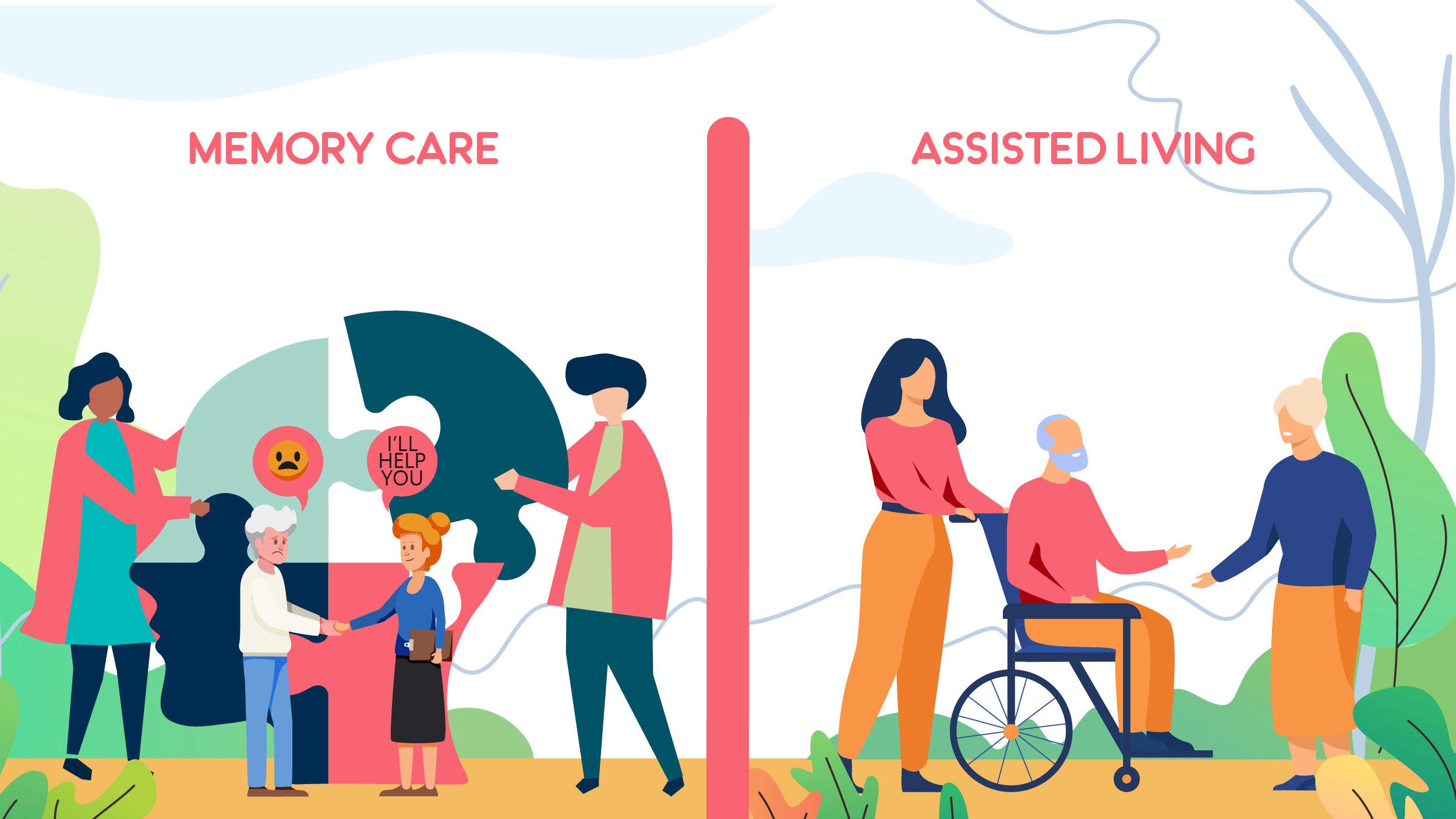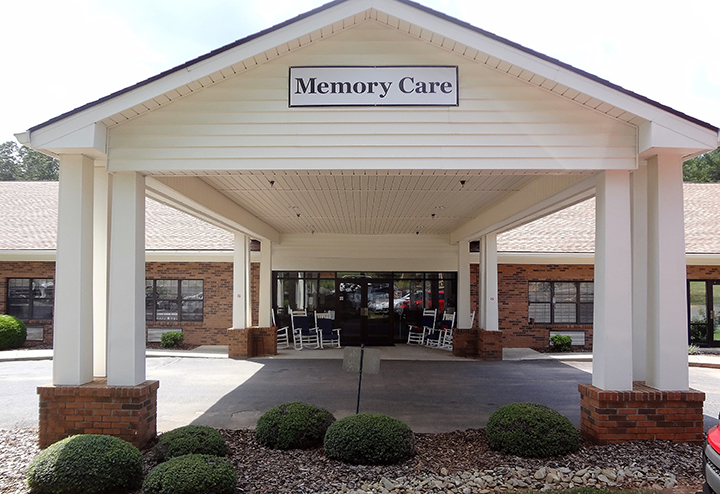Creating a Safe and Supportive Environment: In-Home Memory Treatment Basics
Establishing a nurturing and safe setting for individuals calling for at home memory care is extremely important to their health and high quality of life. From ensuring security within the living room to using efficient interaction techniques and executing memory-friendly layout components, there are essential elements that add to a holistic treatment approach. By concentrating on developing a supportive environment that deals with the unique needs of those with memory problems, caretakers can significantly boost the daily experiences of their loved ones.

Safe Living Setting
When providing at home memory care for individuals with cognitive impairments,Developing a hazard-free and safe and secure living setting is vital. Making sure the safety of the individual with amnesia is essential to stop accidents and promote a sense of wellness. One essential facet of creating a secure living setting is to eliminate any type of possible dangers that might result in slides, trips, or falls. This includes safeguarding loosened rugs, ensuring adequate lighting in all areas of the home, and keeping pathways clear of mess.
Furthermore, it is essential to set up security functions such as grab bars in washrooms and hand rails along staircases to give support and prevent accidents. Additionally, utilizing innovation such as movement sensing units and alarm systems can notify caretakers if the individual wanders or is in distress. Producing a safe living environment additionally involves applying approaches to stop wandering, such as making use of door alarms or locks to restrict accessibility to unsafe locations. By prioritizing precaution and removing prospective threats, caretakers can offer a secure and helpful atmosphere for people with cognitive impairments obtaining in-home memory care.
Efficient Interaction Strategies
Carrying out tailored interaction techniques is crucial in promoting meaningful communications with individuals with cognitive disabilities in the context of in-home memory treatment. Effective interaction plays an important function in producing a helpful environment that enhances the health and lifestyle for people with memory concerns. When connecting with a person experiencing cognitive decrease, it is essential to utilize clear and simple language, keep a calm and positive tone, and provide aesthetic cues to aid understanding.
One secret strategy is to exercise energetic listening, showing empathy, persistence, and respect throughout conversations. Non-verbal signs such as facial expressions and body movement can additionally assist communicate understanding and assistance. Additionally, making use of reminiscence treatment by utilizing or discussing previous experiences music and art can take advantage of lasting memories, boosting and sparking links involvement.
Furthermore, including regular routines and consistent communication patterns can supply a sense of experience and safety and security for people with memory disabilities. By implementing these communication methods, caretakers can develop significant connections and advertise a sense of convenience and rely on the in-home memory care setting.
Memory-Friendly Style
Provided the importance of producing a supportive atmosphere for people with memory concerns through reliable interaction methods, the incorporation of memory-friendly layout aspects in the space ends up being crucial in enhancing their everyday experiences and total health. Memory-friendly layout focuses on enhancing safety Recommended Site and security, convenience, and independence for people with cognitive disabilities. Simple alterations can make a significant difference, such as utilizing contrasting colors to boost presence and decrease confusion, integrating clear signs to aid navigation, and decreasing clutter to avoid sensory overload.
Incorporating familiar elements from the person's past, such as favorite things or personal images, can evoke positive memories and produce a feeling of familiarity. By incorporating these memory-friendly style components, caregivers can offer a secure and helpful living space that makes it possible for people with memory concerns to keep their independence and top quality of life. Charlotte Memory Care.
Daily Routine Planning
When establishing a day-to-day routine for people with memory issues, careful planning is important to support their cognitive feature and total wellness. Developing a structured Read More Here routine can aid lower anxiousness, complication, and disorientation typically experienced by those with memory problems. Begin by integrating familiar tasks that line up with the person's choices and interests. Uniformity in everyday routines can provide a sense of safety and security, aiding in the conservation of cognitive abilities.
Versatility is crucial, as some days might need adjustments based on the person's mood and power degrees. Consistently reviewing and adapting the daily timetable will assist guarantee its efficiency in promoting a favorable and soothing atmosphere for individuals with memory challenges.
Support Group Implementation
Developing a robust network of helpful individuals plays an essential function in improving the top quality of treatment and well-being for people needing memory support. Member of the family, buddies, medical care specialists, and community resources can all add to developing a strong support group. Communication amongst these individuals is important to ensure that the requirements of the specific with memory difficulties are met efficiently.
Relative are frequently the key caregivers and develop the backbone of the assistance system. They supply everyday treatment, emotional support, and friendship. When needed to avoid exhaustion and make sure the best possible care for their loved one., it is critical for household members to look for assistance and break.
Along with family go members support, including medical care professionals such as physicians, specialists, and nurses can provide customized care and guidance. These experts can use valuable understandings, clinical suggestions, and aid in handling the individual's problem.

Conclusion
In conclusion, creating a encouraging and secure setting for individuals with memory care needs is crucial for their wellness. By establishing a secure living atmosphere, utilizing efficient communication strategies, including memory-friendly layout aspects, intending day-to-day routines, and carrying out a strong support system, caregivers can help improve the lifestyle for those with amnesia. These crucial parts collaborate to create a nurturing and encouraging atmosphere that promotes independence and enhances total top quality of life.
Producing a hazard-free and protected living environment is paramount when providing at home memory treatment for individuals with cognitive impairments. By focusing on security measures and getting rid of possible dangers, caregivers can provide a safe and secure and helpful environment for people with cognitive disabilities obtaining at home memory care.
Developing a robust network of encouraging individuals plays a critical duty in improving the quality of treatment and well-being for people requiring memory assistance - Charlotte Memory Care. Communication amongst these individuals is essential to make sure that the needs of the private with memory difficulties are fulfilled successfully
